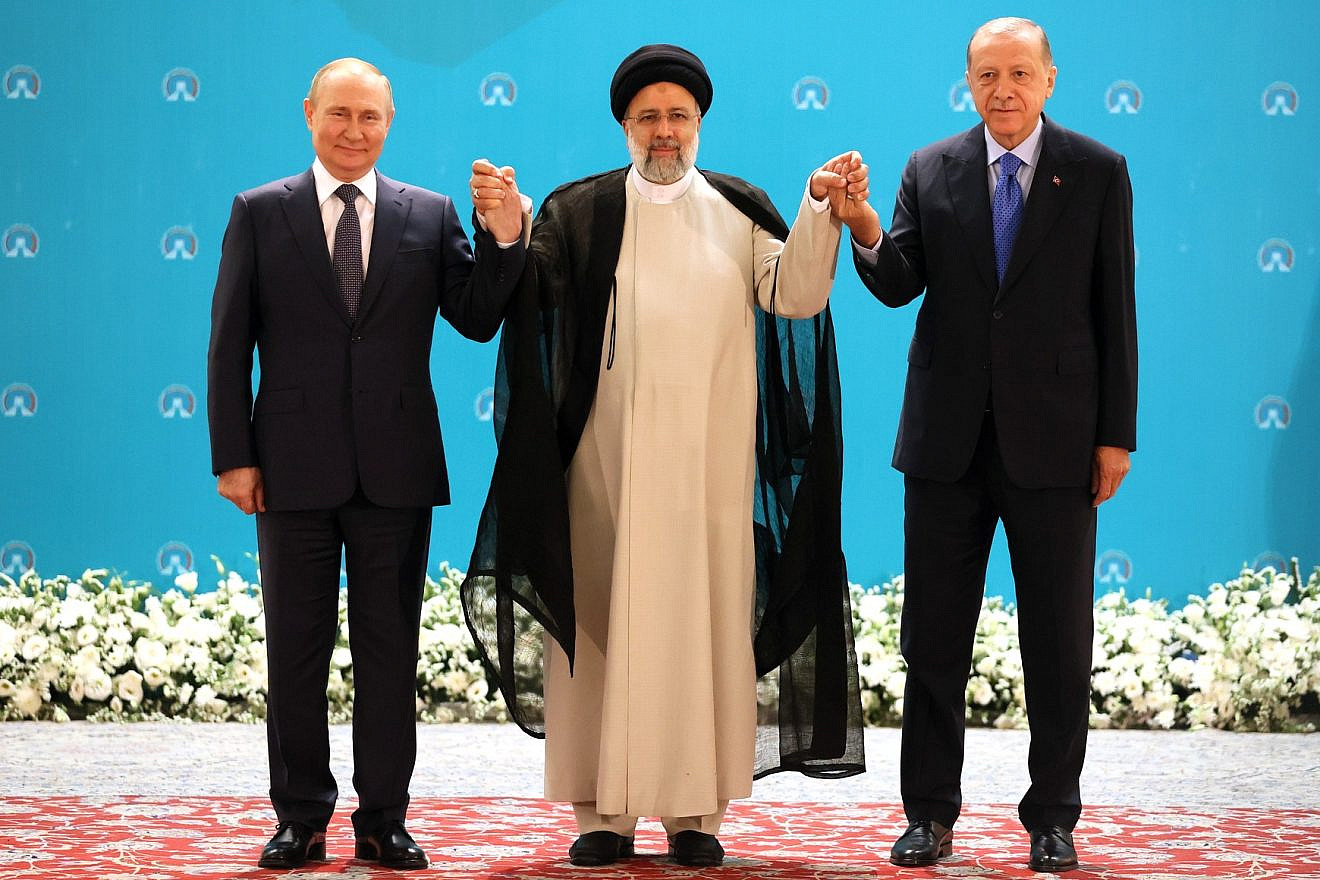I recently had the freedom to rush to my bomb shelter as Iranian drones and missiles targeted Israel.
As Israel’s defense systems and help from its allies protected me and millions of others, I was especially thankful for the past two years of refuge I have found in the Jewish state. After refusing to support Russia’s invasion of Ukraine, I fled Moscow. The awareness that I am free while others are not grows more intense around Passover, the holiday of freedom. But this year, it is especially heavy. More than 100 hostages are still in captivity in Gaza, more dissidents are jailed in Russia and tolerance for authoritarianism is growing around the world, emboldening regimes like Iran.
What is perhaps more disturbing is that much of the world doesn’t understand what freedom is.
As the Passover story tells us, freedom is not just about liberation. According to the Bible, after leading the Israelites out of Egypt, God commands them with various laws—from the Sabbath to dietary laws to family behavior. The story of the Israelites wandering in the desert is not merely one of an oppressed people finally tasting freedom, but also the story of a people forming a lawful society. It is the story of a people learning to use their newfound freedom to be responsible for their own actions and understanding that this is central to their destiny.
It is this element of responsibility that the world grossly misses in its bandying of the term “freedom.” In many cases, including much of the Palestinian liberation movement driving the current Mideast conflict, the freedom sought is the freedom to dominate or destroy people who are different, not to build a society that protects the rights of everyone. This is especially clear since the Oct. 7 attacks.
Hamas, which the U.S. designates a terrorist organization, claims that it needs to carry out terror attacks like the Oct. 7 massacre in order to “liberate” the Palestinians from Israel. But murdering over 1,200 people—most of them civilians—is not a path to freedom.
Hamas also oppresses the same Palestinians it claims to want to free, putting them in danger in both Gaza and Judea-Samaria. It uses civilians and civilian infrastructure as human shields, kills those suspected of collaborating with Israel and steals humanitarian aid for itself or to sell at marked-up prices, making life in Gaza miserable.
Notice that many of Hamas’s strongest supporters and financial backers in the fight for its twisted sense of freedom are themselves oppressive authoritarian regimes. The support of Russia and Iran for Hamas should raise red flags, as these are places where governments are free to oppress. Russia continues to commit violence in Ukraine, restricting freedoms there as well as locking up growing numbers of dissidents—some of them Jewish, including politician Ilya Yashin, opposition leader Vladimir Kara-Murza and American journalist Evan Gershkovich—at home for daring to speak out against oppressive autocracy. Iran continues its violent repression of its own citizens while threatening more attacks against Israel, the United States and anyone who fights its terrorism.
Many human rights activists and Western democracies rightly oppose the actions of these regimes, including Iran’s brazen attack on Israel and Russia’s invasion of Ukraine. But this only adds to their hypocrisy in failing to hold Hamas responsible for the tragedy in Gaza and calling for Palestinian self-rule without sufficient demands for ending terrorism and returning the hostages to Israel. Those who support Ukraine in the name of freedom and democracy should be supporting Israel and condemning Hamas. The authoritarian evil is one and the same.
The masses rallying around the world for Palestinian “freedom” ignore the ongoing concessions made by Israel over the last several decades, offers of Palestinian independence and thousands of Israelis murdered by terrorists over the years. By chanting phrases like “from the river to the sea,” they not only ignore the responsibility that comes with freedom but essentially call for the erasure of Israel, the only democracy in the Middle East, rather than condemn Hamas for its crimes against its own people.
As Jews sit at the Seder table next week, the tragedy of how freedom has been twisted will weigh heavily on our minds. Israel will remain on high alert for incoming attacks from Iran and its proxies in Lebanon and Yemen. Many of us will have empty seats at the table, left by those killed by Hamas’s so-called “freedom fighters” on Oct. 7 or during the ongoing war, and by those who remain hostage in Gaza. Many of us will add empty seats to remind us of those who are not free to join us.
These empty seats and the fear of more missiles from Iran should be a wake-up call for human rights activists and world leaders: What kind of freedom, exactly, are they supporting when they call for “liberation” in Gaza? In order to rebuild Gaza, see the release of the hostages and dissidents, and let Russians and Iranians live freely, we need more people to call not just for freedom, but for an appreciation and acknowledgment of the responsibility that comes with freedom.


























